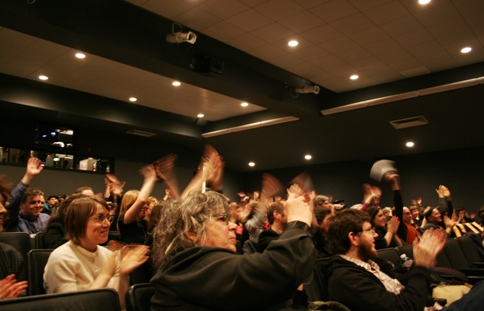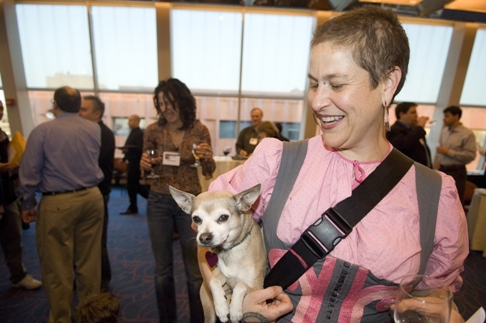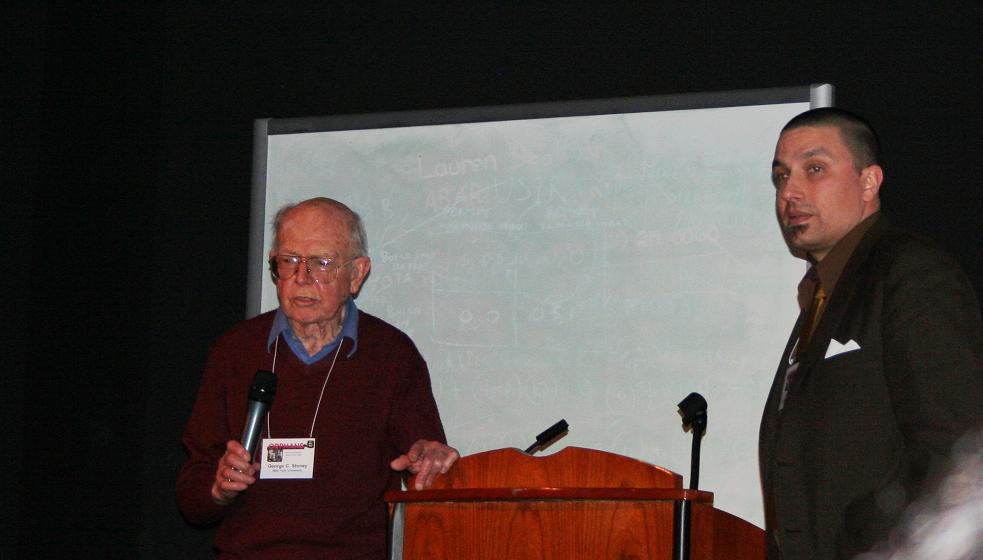In a screening that was as loose and folksy as its title suggests, “The Country” spotlighted films that suggested the pitfalls and promises of rural life.
Melinda Stone and Sam Sharkey appeared via a live video feed from San Francisco. They began the night with a “natural anthem” sing-along film to the song, "Everyone Needs a Hoe." Although the audience couldn’t see the words to sing, the marriage of technology to folk music delighted all.

Post-dinner euphoria thanks to I-Chat
Orphan love from coast to coast!
Proving that there’s more than one way to reflect on rural life, Helen Hill award winner Naomi Uman presented a selection from her work-in-progress titled Kalendar based on her time spent in the Ukraine. The piece maps the names of the months in Ukrainian with images, that set often gray landscapes against the bright colors of spring, people’s houses and clothing.

Naomi Uman with door prize
Returning to the U.S., North Carolina State University professor Devin Orgeron presented the rare film about a state that isn’t trying to market itself as a tourist destination. Orgeron began his project by looking for state-funded travel films, many of which were made in the 1940’s and 1950’s as states sought to take advantage of the post-war economic boom. North Carolina’s films promoted the state as “variety vacationland,” a nod to its beaches, mountains and piedmont region. He showed a recent advertising campaign that demonstrated the resiliency of this slogan.

George Stoney and Devin Orgeron
But George Stoney’s 1949 film Tar Heel Family, is a sharp contrast from the boosterish travel films that are usually produced by state governments. Instead, “Tar Heel Family,” was targeted at high school students, who were intended to learn from the film that North Carolina was not protecting its natural resources and risked losing much of its prosperity if it didn’t change its course. After the screening, Stoney noted that he was particularly proud that he was able to include African-Americans in the film- a difficult feat in the still-segregated South.
The night concluded with a screening of Uman’s thesis film from Cal Arts, Leche, which focused on ranch life in Mexico. While there were no hay rides nor barnyard animals (although Uman’s dog, Tattoo, was present for the screening), the country night of Orphans proved to be a success.
- Martin L. Johnson